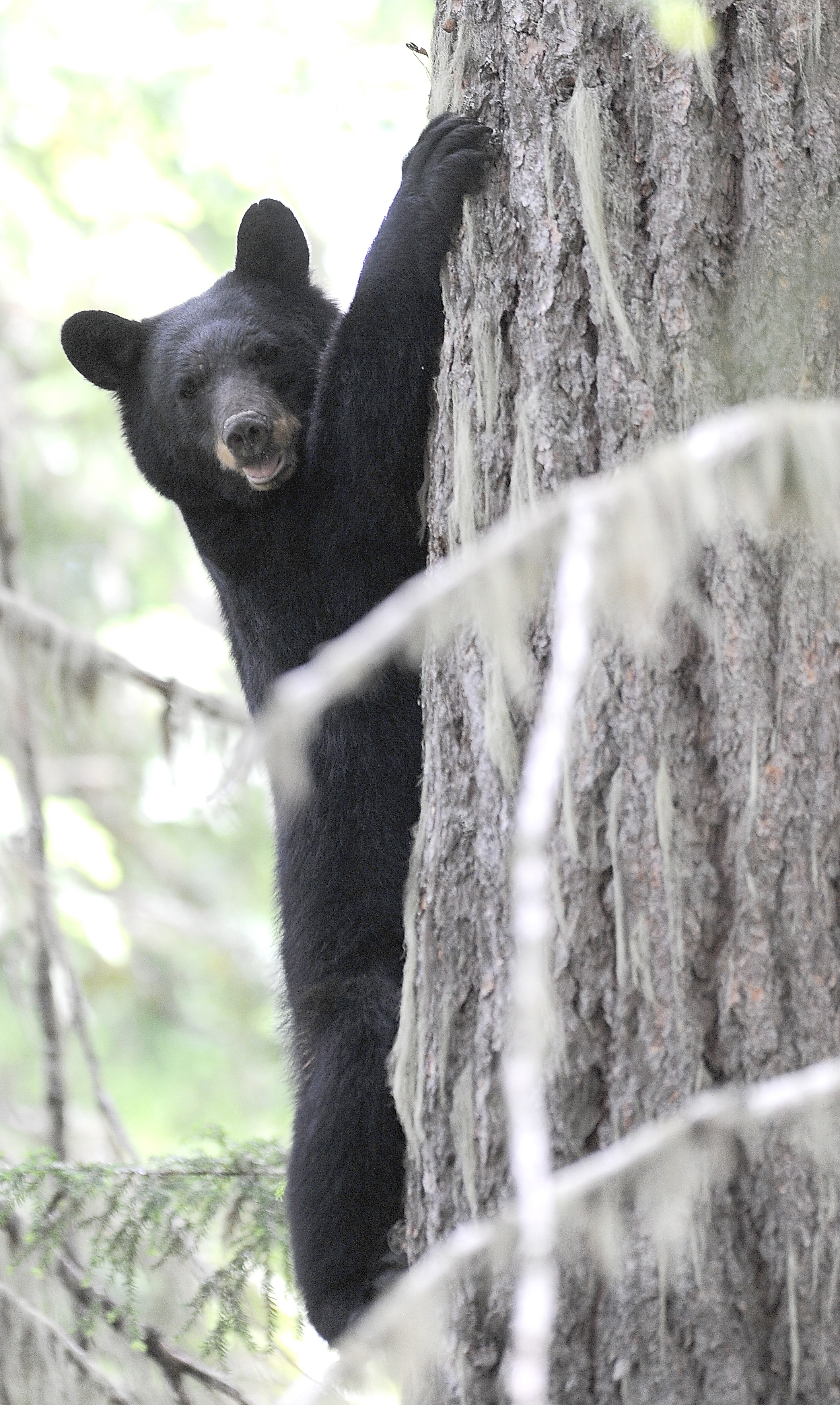
Fort Jackson officials recently offered tips on how to deal with any bears they may come across. The Midlands of South Carolina, and the southeastern part of the United States see a summer migration of bears from the mountains to the coastal region as the animals search for mates. They caution black bears rarely become aggressive, but if they are aggressive, don’t run. Experts suggest you make yourself bigger by raising and waving your arms. (Army News Service photo)
Be smarter than your average bear
By Emily Hileman, Fort Jackson Public Affairs
If you’re new to the Midlands or the southeastern part of the United States, you may have noticed trash strewn about your neighborhood or footprints in the mud that don’t quite resemble the troublemaker next door. The southeastern United States is home to several species of critters and vermin and they tend to be more active from late spring through early fall.
According to the South Carolina Department of Natural Resources, wildlife species such as beavers, black bears, opossums, raccoons, squirrels, and skunks are all too common in the Palmetto State.
If you’re from a larger city or areas with little vegetation, you’re likely panicking at the thought of black bears being anywhere near the vicinity of your home, but not to worry.
In the area near Fort Jackson, the only bear population is black bears. While they can still be large, they’re transient and rarely become aggressive.
“We’ve had black bears in South Carolina for a long, long time,” said Doug Morrow, Supervisory Wildlife Biologist with the Directorate of Public Works on Fort Jackson. “We don’t have large populations of bears residing in this part of the state, but we do have some transient bears.”
Morrow said two things are causing an influx of bears to pass through the area and both of them revolve around mating season. Sows, the term for female bears, are in heat during the summer months and are looking to find boars, the term for male bears, so they can mate.
During this time, female bears will also send any male offspring into the wild to find their own territory. These young boars will travel great distances to find new territory that’s not occupied by other bears, specifically older and more established boars.
“There have been multiple sightings in this area this year,” said Morrow, who confirmed his information with the South Carolina Department of Natural Resources. “Most of them are east of Fort Jackson in Sumter County or on the other side of the river, but this isn’t an annual occurrence for us. Typically, we have one or two come through the area and you never see them again.”
Although bears and other wildlife in the area isn’t new, there are a few things you can do to prevent bears and other wildlife from coming to close to your home, relying on your trash for their treasured finds, and to keep everyone (including the wildlife) safe.
Make sure to secure food, garbage, and recycling in clean and covered receptacles, remove bird feeders with seeds and nuts (bears are primarily herbivores), don’t feed pets outside and clean and store your outdoor grills help keep bears at bay.
If you’re hiking, there’s also a few things you can do to keep you and your loved ones safe from bear encounters such as being aware of your surroundings, hike in groups and stay together, keep children within sight and keep dogs on a leash or leave them at home.
For the outdoor lovers that enjoy camping, keep a clean camp and don’t burn food scraps or trash in your fire ring or grill, don’t store food and trash in your tent and cook downwind as far away from your camp as possible.
If you’re in the wilderness or in your own neighborhood and spot a bear, don’t panic. If the bear doesn’t notice you, remain still and quiet and let the bear calmly pass. Do not approach the bear or run. Also, don’t feed the bear. Not only can it cause bears to become reliant on humans for food, but it’s also illegal in the state of South Carolina.
Black bears rarely become aggressive, but in the off chance one approaches you, don’t run. Stand your ground, make yourself look bigger by raising and waving your arms and make loud noises to scare the bear off.
Luckily, the local area isn’t the most prime habitat for most bears because there’s a lot of deep sands and it’s dry, said Morrow.
“In fact, the sightings we’ve had are typically around the watersheds associated with our big creeks,” he added.
At the end of the day, Morrow said to treat them like any other wild animal. Just like many other wild critters, they have the potential to cause you harm, but they’re not typically aggressive.
“Keep your distance, watch them and enjoy them,” Morrow said. “They’re pretty cool.”


